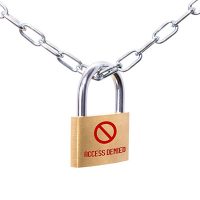Estate Planning And Social Media Accounts

It sounds like the last thing on your mind, when a loved one passes away: Their social media accounts. Yes, social media accounts for most of us have no monetary value. But you may want to access a deceased’s social media accounts for a number of reasons. California law makes this easier to do than it once was.
Why Access May Be Important
Why would you want to go into a deceased’s social media account? There may be a number of reasons:
- You may want to announce the death to friends and family, and use the deceased’s account to make important announcements, such as funeral arrangements
- You may want to, at some point, deactivate the account, to avoid painful “reminders” popping up, like birthdays or anniversaries
- In the event that the death was suspicious, or you suspect a crime may be involved, you may want to access the accounts, to do research on the issue
- You may want to access old pictures or videos that have meaning to you
Most social media sites have strict policies over who accesses someone else’s account, and they often don’t make exceptions for the deceased. In fact, many law enforcement agencies have had problems getting evidence from social media accounts, evidence that may be needed to solve a crime.
Access to Digital Assets
As a general rule, social media companies don’t care about who you are, your relation to the deceased, or the reason why you need access to the account. They will usually deny you access to the account—except for California law, which provides you some rights to access these kinds of accounts.
The Revised Uniform Fiduciary Access to Digital Assets Act lets someone designate another person to have access to their social media accounts when they are gone. This can be done or designated in any estate document, including power of attorney, or in a will. Alternatively, someone can use anything that is provided by the social media company (such as a form or designation), if one is made available.
Note that using a social media’s online access permission, will override anything to the contrary written in an estate document.
Refusing Access and Limitations
There are still situations where the social media provider may refuse access, such as when access to an account would create an “undue burden” on the provider. Additionally, the social media company only needs to allow you to access what is currently on the site; they don’t have to give you access to deleted files, or backups, or anything stored on the company servers that doesn’t actually appear on the page or site.
This law doesn’t apply to devices; any locked device will need to be accessed in other ways. The law also doesn’t allow you to use any assets in a way that you otherwise wouldn’t be able to use (for example, misusing the deceased’s copyrighted material).
Call the Torrance will attorneys at Samuel Ford Law today to discuss your digital accounts and assets, and an estate plan that accounts for all of them.
Sources:
legislature.ca.gov/faces/codes_displayText.xhtml?lawCode=PROB&division=2.&title=&part=20.&chapter=&article=
scholarlycommons.law.cwsl.edu/cgi/viewcontent.cgi?article=1321&context=fs
